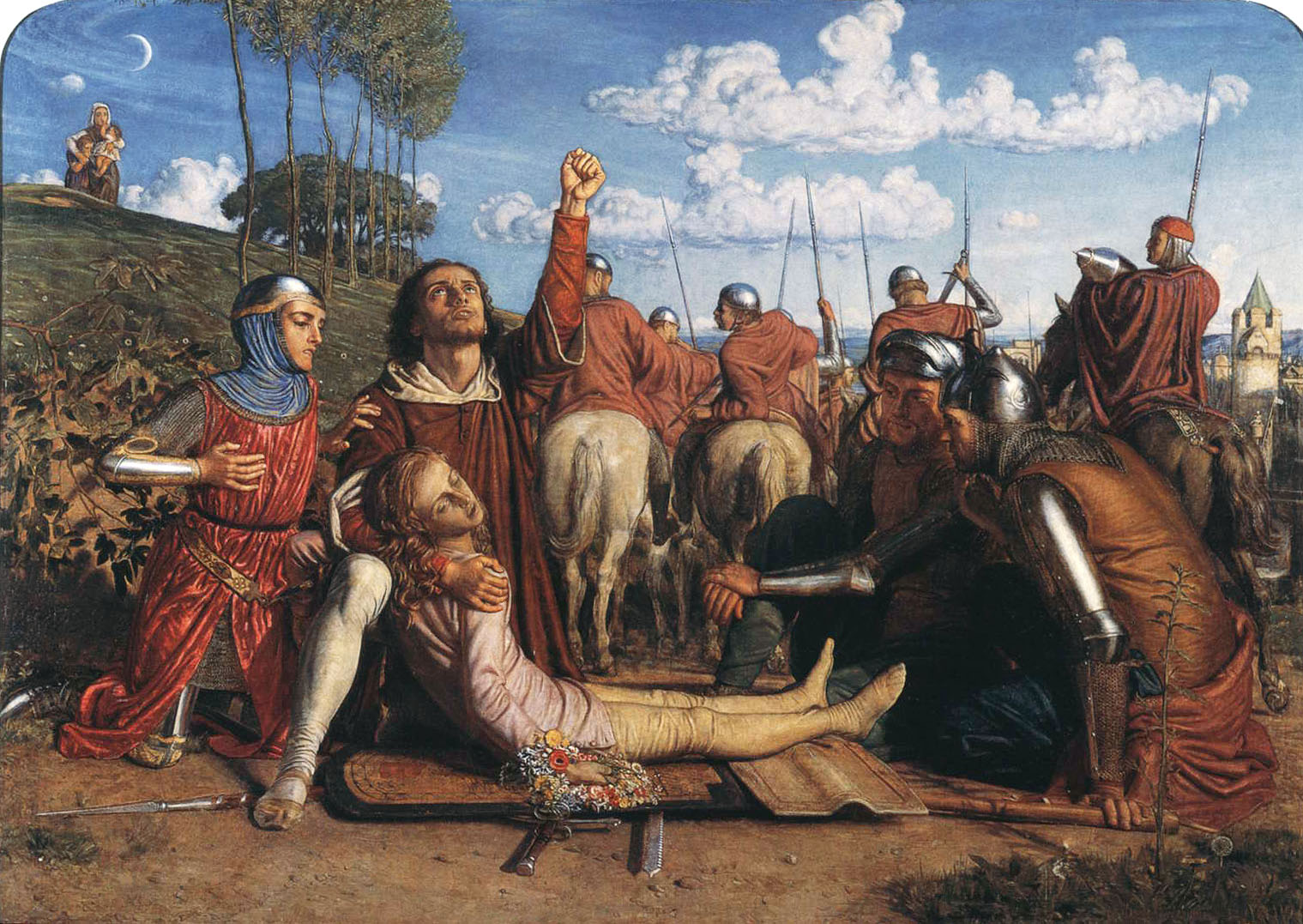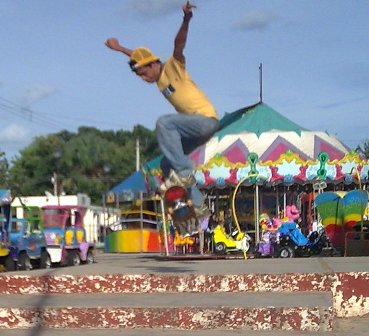NPR's sites use cookies, similar tracking and storage technologies, and information about the device you use to access our sites (together, 'cookies') to enhance your viewing, listening and user experience, personalize content, personalize messages from NPR's sponsors, provide social media features, and analyze NPR's traffic. This information is shared with social media, sponsorship, analytics, and other vendors or service providers. See details.
Richard Wagner 's first successful opera, Rienzi (Dresden, 1842), based on Bulwer-Lytton's novel, took Cola for a central figure, and at the same time, unaware of the Dresden production, Giuseppe Verdi, an ardent and anti-clerical patriot of the Risorgimento, contemplated a Cola di Rienzo. Even though Rienzi was the first success of Richard Wagner's career, he repeatedly revised and eventually repudiated it, along with his early operas, Die Feen and Das Liebesverbot. It was not performed as part of the Bayreuth canon until Wagner 's bicentennial celebration in 2013, though it remained enormously popular in Europe and the United.
You may click on 'Your Choices' below to learn about and use cookie management tools to limit use of cookies when you visit NPR's sites. You can adjust your cookie choices in those tools at any time. If you click 'Agree and Continue' below, you acknowledge that your cookie choices in those tools will be respected and that you otherwise agree to the use of cookies on NPR's sites.
Torsten Kerl (Rienzi)Rienzi, Richard Wagner's first operatic success, is about a 14th-century Italian populist who rebelled against the nobles. He was killed when he quickly lost the support of the people and the church, despite his initial success. Adolf Hitler was said to have been very impressed with the opera as a young man, and had the original manuscript kept in his Berlin bunker, so it was not so far-fetched for Philipp Stölzl to create his 2010 production with Rienzi depicted as a Hitler-like figure. The setting of the famous overture is a brilliant tour de force. We see a man in military uniform seated at an enormous long table. Outside the large windows are snow-covered mountains. The room could be in Hitler's eagle's nest. A man dances around the room, ending with several cartwheels. It is a clever way to establish in no uncertain terms what the director intends to do: portray Rienzi as Hitler.
To a large extent, Stölzl's plan succeeds. Rienzi's loyal sister, Irene, dressed in a Dirndl, could be Eva Braun, with even a hint of their relationship being more than that of siblings. There is an extensive use of film to broadcast Rienzi's speech, reminiscent of Hitler's propaganda campaigns. Rienzi and his men salute one another with a clenched fist to their breast (instead of raising an arm). Rather than a swastika, Rienzi's symbol on his banner is the letter 'R,' which could also stand for his name or for Rome, the setting of the opera. The last three acts, after the intermission, sees the stage split into two levels: Rienzi's (or Hitler's) bunker and the streets of Rome (Berlin) on top. To the very end Rienzi, like Hitler, seems convinced of the support of his people and persists in sending his broadcasts. He sings his famous prayer 'Allmächt'ger Vater' while building his ideal cityscape of model buildings. The final scenes show the brutality of mob mentality and the quick shift in political fortunes, as both Rienzi and Irene are clobbered to death. The city of Rome (Berlin) is left in tattered ruins.
If one overlooks the incongruity of the repeated references to Rome in the libretto and the different motivations that might have driven Rienzi and Hitler, the parallel of the two historic figures works well, and some mob scenes are harrowing and arresting. Stölzl succeeds in creating an atmosphere of a claustrophobic city by limiting the action to the front of the stage. This performance featured Torsten Kerl as Rienzi, who created the role at the 2010 premiere. His voice is not large but he managed to essay the demanding tessitura of the role with clarity and warmth. His characterization of Rienzi, whose intentions remain genuine to the end, was convincing and touching. Smaller male roles were all well cast, with Derek Welton's Cardinal Orvieto showing off his deep sonorous bass in his brief appearance. The chorus members impressed vocally and in acting as prominent participants of this work, written in the French grand operatic style.
Elisabeth Teige, as Irene, had a bright and penetrating voice that stood out in the ensemble scenes. She had a winning stage presence and acted well the part of a woman torn between her role as a supporting sister and a lover to Adriano, the son of a nobleman. But it was Annika Schlicht as Adriano who was the vocal standout of the evening. Her substantial and warm voice opened up with power and resonance as she played the role of a young man who falls in love with the sister of her father's enemy. Her duet with Teige was full of passion and trepidation, and she remained the driving force throughout the performance.
While Wagner viewed Rienzi as his French-style grand opera and excluded it from the canon of his operas to be performed in Bayreuth, much of the music in Rienzi foreshadows his subsequent works, especially The Flying Dutchman and Lohengrin. Already, some of the music has the quality of continuous flow, and the orchestra plays a prominent part in describing the action and emotion. Conductor Evan Rogister managed to keep the orchestra, soloists and chorus together throughout the evening, the orchestra responding with indefatigable energy. It was a rare pleasure to experience Wagner's early opera performed well in such an interesting production.
See full listing


Youtube Wagner Rienzi
Rienzi Wagner Synopsis
Rienzi Wagner Libretto


